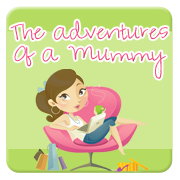* extracted from Babycenter *
Highlights
Talking
Talking is inextricably linked to understanding speech. By listening to others, your child learns what words sound like and how to put a sentence together. As a baby, he discovered first how to make sounds, then how to make those sounds into real words ("mama" and "dada" may have slipped out as early as 4 or 5 months). By the time he was a year old, he was diligently trying to imitate the sounds around him (though you probably heard him babbling away in a lingo that only he could understand). Now comes a period of extraordinary growth, as you watch your toddler go from speaking a few simple words to asking questions, giving directions, and even telling you stories he's made up.
When and how it develops
Here's how you can expect your toddler's talking to progress. If he's being raised in a bilingual environment, the number of words he can speak will be split between the two languages he's learning.
12 to 18 months
At his first birthday, your child will likely use one to five words meaningfully. By 14 months, that working vocabulary may grow to seven real words, though he may have up to 20 "words" (these may be more like sounds) that only he and someone close to him can understand. He'll even practice inflection, raising his tone when asking a question. He might say "Up-py?" when he asks to be carried, for example.
Your toddler is realizing the power of talking as a means of communicating his needs. Until he learns more words to get his ideas and desires across, he'll likely combine his speech with gestures to show what he wants. He'll reach his arms toward his favorite toy, for example, and say "ball." In fact, some toddlers develop a whole sign language of gestures to communicate with their parents. Your child might cover his face when he's embarrassed, for example, or pound on the table when he's mad.
Don't worry if he struggles to get his meaning across now and then. This frustration is actually a healthy sign that he's trying hard to communicate and cares whether or not you understand him.
By 16 months, your toddler will probably start making many common consonant sounds, such as t, d, n, w, and h. Learning to make these sounds is a watershed event, one that leads to the rapid vocabulary spurt that most children go through starting around 18 months. Don't expect to hear all these sounds in actual words yet. But you may hear him repeating them when he's alone in his crib or playing with his toys.
19 to 24 months
Your child now understands as many as 200 words, though he'll probably use only 50 to 75 of them regularly. Many of these words will be nouns that designate objects in his daily life, such as "spoon" and "car." Between 18 and 20 months, his pace will pick up as he acquires ten or more new words each day. If he's especially focused on learning to talk, he can add a new word to his vocabulary every 90 minutes — so watch your language!
During this phase your child may begin stringing two words together, making basic sentences such as "Carry me." Since his grammar skills are still undeveloped, you'll often hear odd constructions such as "Me go." He's understood for some time that he needs language, and he'll attempt to name new objects as he observes the world around him. He may overextend the words he already knows, though, so that all new animals are called "dogs," for example.
Starting around his second birthday, your child will begin using three-word sentences and singing simple tunes. As his sense of self matures, he'll use "me" to refer to himself, and he's likely to tell you what he likes and doesn't, what he thinks, and what he feels. You may hear him say, "David want juice" or "Baby throw," for instance. (Pronouns are tricky, so you may catch him avoiding them.)
25 to 30 months
Now that he has a bigger vocabulary, your toddler will begin to experiment with modulation. For a while he may yell when he means to speak normally and whisper softly when answering a question, but he'll find the appropriate volume soon enough. He's also starting to get the hang of pronouns, such as "I," "me," and "you." Between ages 2 and 3, his working vocabulary will grow to up to 300 words — and he'll understand up to 900 words. He'll string nouns and verbs together to form complete but simple sentences, such as "I go now."
He'll even get the hang of speaking about events that happened in the past. He may not quite understand the concept of irregular forms, though, so you'll hear expressions like "I runned" or "I swimmed" and plurals like "mouses." Sure, it's cute, but it also shows that he's picking up on the basic rules of grammar (that you add a "d" sound to a word if it happened yesterday, for example, and an "s" sound to make things plural).
At this age, your child will start answering simple questions, such as "Do you want a snack?" and "Where are your shoes?" If you notice that he consistently echoes your questions rather than trying to answer them, bring it up with your child's doctor. Such behavior can be an early sign of a developmental problem such as autism.
31 to 36 months
By the time he turns 3, your child will be a more sophisticated talker. He'll be able to carry on a sustained conversation and adjust his tone, speech patterns, and vocabulary to fit the person he's talking to in a particular situation. For instance, he'll often use simpler words with a peer ("I need go potty") but more complex constructions with you ("I need to go to the bathroom").
By now, other adults, including strangers, should be able to understand almost everything he says, which means you won't have to do as much translating. He'll even be a pro at saying his first and last name and his age — and will readily oblige when asked.
Your role
You can help your child's language skills along by providing a rich and nurturing communication environment. The most important things to do:
• Talk. Research shows that children whose parents spoke to them extensively when they were babies have significantly higher IQs and richer vocabularies than other children. You don't need to chatter nonstop, but speak to your child whenever you're together. Describe what you're doing, point things out, ask questions, sing songs. (Although some baby talk is okay, resist the temptation to coo and babble. Your child will learn to speak well by listening to you speak well.) • Read. Reading to your child is a great way to expose him to new vocabulary, the way sentences are put together, and how stories flow. But don't just read the words — ask your child to find things in the illustrations or tell you what happened to the characters. • Listen. When your child talks to you, be a good listener — look at him and be responsive. He's more likely to speak up when he knows you're interested in what he's saying.
When to be concerned
You're the best person to gauge your child's speech development. If he's showing any of the signs listed below and you feel concerned, it's a good idea to discuss the possibility of a language delay or hearing problem with your child's doctor.
If it seems necessary, your doctor will refer your child to a pediatric speech-language pathologist for an evaluation. (A searchable directory of certified therapists can be found on the American Speech-Language-Hearing Association's Web site.) Alternatively, your doctor's office, daycare provider, or local school might be able to direct you to an early intervention program in your area — usually coordinated through the county or public school system — that will provide free screening for language problems.
Some signs to look out for:
12 to 18 months
Your child isn't saying any words by 15 months (including "mama" or "dada"), didn't babble before his first birthday, is unable to point to any body parts, or you still can't understand a word he's saying by 18 months.
19 to 24 months
Your child rarely attempts to speak or imitate others, drops consonants from words (saying "ea-ut" for "peanut," for example), doesn't seem to get frustrated when you can't understand what he wants, or only uses single words — no combinations.
25 to 36 months
Your child continues to drop consonants, has difficulty naming most everyday objects, hasn't started to use two- or three-word phrases, or by age 3 cannot be well understood by someone who doesn't know him.
If your child stutters, it doesn't necessarily signal a problem. Stuttering is a normal phase, especially when his ability to communicate is expanding so rapidly. Sometimes he'll be so excited to tell you what's on his mind that he can't get the words out fast enough. But if his stuttering continues for more than six months, or if it's bad enough that he tenses his jaw or grimaces in an effort to get the words out, talk with his doctor about it.
What comes next
As your child grows, he'll become more of a chatterbox. There might be moments when you long for those peaceful days of speechlessness, but for the most part, you'll delight in his play-by-plays of what happened at preschool, what he thinks about dinosaurs, and his descriptions of what his best friend likes to eat.
By age 4, your child will use about 800 words. He'll begin to understand and use correct tenses, along with the words "won't" and "can't." Oh, and get ready for every why, what, and who question under the sun.




No comments:
Post a Comment